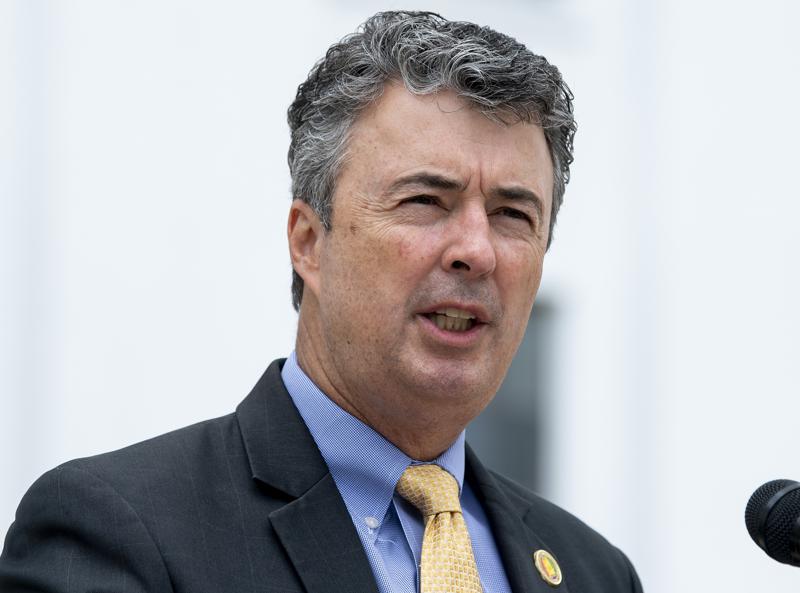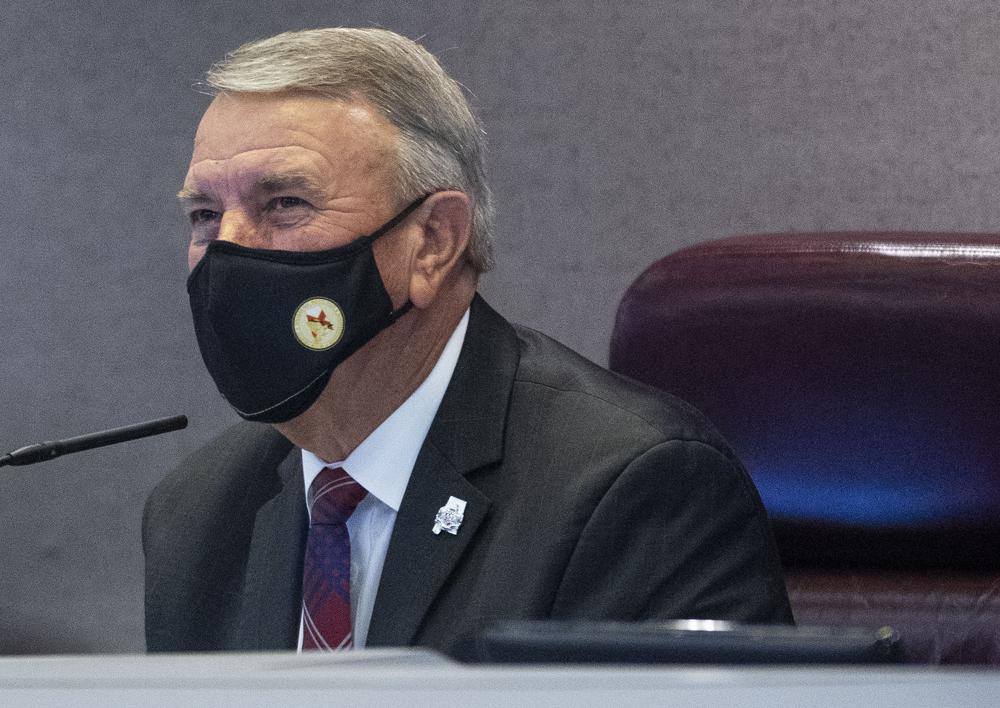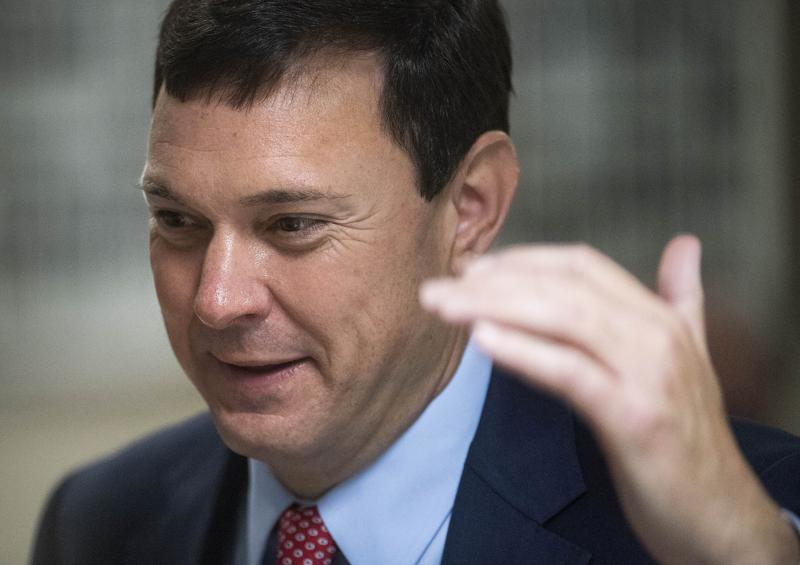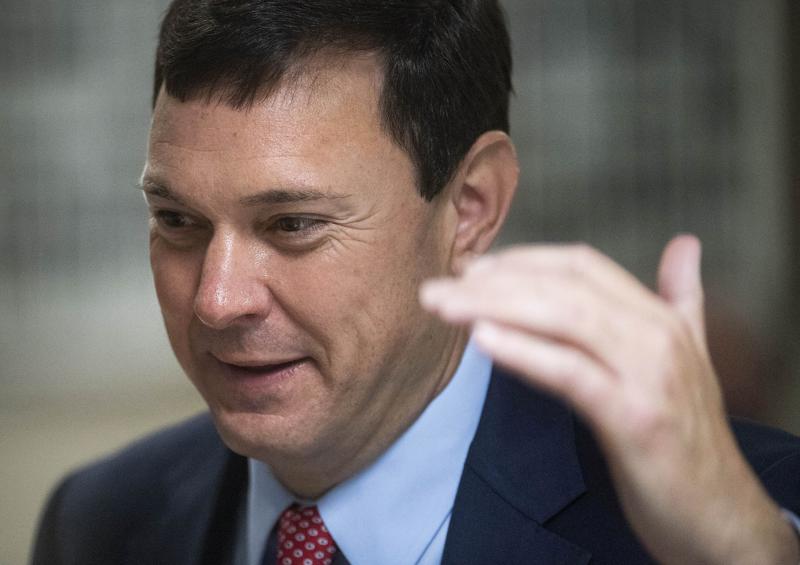Alabama dog track owners join forces in media campaign for lottery, casino legislation

Alabama’s four greyhound tracks have joined forces to launch an advertising campaign to support legislation to allow a lottery, casinos, and sports betting in the state reported Al.com. The Birmingham Race Course, Greenetrack Bingo & Racing, Mobile Greyhound Park, and VictoryLand have set up a group called the Alabama Track Owners Association to support the campaign. The association is urging people to call their legislators to support a constitutional amendment that would allow the expansion of gambling and gambling regulation. In a press release this morning, the association summarized its message: “Alabama is losing hundreds of millions of dollars in gaming and lottery revenue to Mississippi, Tennessee, Georgia, and Florida. This continues to happen year after year because the Alabama State Legislature has not approved the comprehensive gaming and lottery plan that would give the people of Alabama the chance to vote on a constitutional amendment. If the constitutional amendment approving the comprehensive gaming and lottery plan were to pass, the State of Alabama would generate hundreds of millions of dollars in additional tax revenue that could be used to fund Alabama priorities including broadband, healthcare, college & trade school scholarships, new job growth, workforce development, and new business opportunities.” Alabama lawmakers ended the 2021 legislative session without a vote on a gambling bill. At the end of the session, Sen. Jim McClendon stated, “I’m quite disappointed. It was a lot of work, but so much for that this session.” Alabama voters have not had their say on gambling in two decades with Gov. Don Siegelman’s lottery plan in 1999. Any plan to expand gambling in Alabama would require the Legislature to approve a constitutional amendment that would then be subject to approval by voters. The ATOA released a short video ad and phone number for people to call their legislators. Any plans to expand gambling in Alabama would require the Legislature to approve a constitutional amendment that would then be subject to approval by voters. Any casino or lottery bill introduced will need bipartisan support to win approval because of some conservative members’ opposition to gambling.
Steve Marshall seeks second term as Alabama attorney general

Alabama Attorney General Steve Marshall announced Thursday that he is running for a second term as the state’s top law enforcement officer. Marshall, a Republican, made the announcement at a news conference in which he touted his participation in lawsuits against President Joe Biden’s administration and derided “lawlessness across our country with cities set ablaze.” “I promise you this. The wave of the past will not be the wave of the future. There will be law and order in the state of Alabama. So long as I am this state’s chief law enforcement officer, I will fight for it and I will see that mission through,” Marshall said. Marshall was appointed to the office in 2017 by then-Gov. Robert Bentley. He won the office in the 2018 election after defeating former Attorney General Troy King in the GOP runoff and Joe Siegelman, the son of former Gov. Don Siegelman in the general election. Under his direction, Alabama joined lawsuits by Republican-led states in suing the Biden administration over several issues, including a suspension of new oil and gas leases on federal land and water and to reschedule canceled sales of leases in the Gulf of Mexico. Marshall also filed a lawsuit against the U.S. Census Bureau seeking to block immigrants living in the country illegally from being included in 2020 U.S. Census counts. “Make no mistake, we are in a fight for the sovereignty of our state and the safety of our citizens. It is a fight that I gladly take on every morning,” Marshall said. Alabama faces an ongoing lawsuit from the U.S. Department of Justice over prison conditions. In his brief announcement, Marshall did not give specifics but appeared to criticize sentencing reforms. “I’m sickened by the repeat offenders that wreak havoc on our cities advanced by policies that have been advocated by members of my own party,” Marshall said. Under Marshall, the state attorney general’s office has also pursued fines against cities that have taken down Confederate monuments in violation of state law. Marshall was head of the Republican Attorneys General Association’s Rule of Law Defense Fund when it sent out calls urging “patriots” to come to a Jan. 6 Washington, D.C., rally that led to the riot at the U.S. Capitol. Marshall said in January that he was unaware of “unauthorized decisions made by RLDF staff with regard” to the rally. Marshall’s wife Bridgette died by suicide in 2018. As reporters inquired about the details of her death, Marshall gave an emotionally raw news conference describing his wife’s deeply personal struggles with depression and anxiety. During the announcement Thursday, Marshall recalled her words at his 2018 campaign kickoff that he “says what he means and means what he says.” Republished with the permission of the Associated Press.
Former Gov. Don Siegelman regains law license

Former Alabama Gov. Don Siegelman has regained his state law license, years after being released from federal prison in a government corruption case. The Alabama Bar Association on Monday confirmed that Siegelman’s license was restored in December after he went through an application process. The former governor, 75, told The Associated Press that he expects to do a mix of criminal and civil work. He said he would like to work with public defenders or advocacy groups to take on criminal defense cases. “I look forward to finding those special cases in which I believe and feel like I can make a difference and working either pro-bono or with another lawyer,” Siegelman said in a telephone interview. Siegelman has become an advocate for making changes to the criminal justice system, including “providing a measure of justice to families who lose someone to the abuse of power or use of excessive force by police.” Siegelman, for decades, was a dominating figure in Alabama politics, holding the offices of secretary of state, attorney general, lieutenant governor, and governor. He served as Alabama’s governor from 1999 to 2003. He was the last Democrat to hold the position in the conservative state. Siegelman was released from prison in 2017 after serving a six-year sentence for his conviction on charges of bribery and obstruction of justice. A federal jury in 2006 convicted Siegelman on charges that he sold a seat on a state regulatory board to HealthSouth founder Richard Scrushy in exchange for $500,000 in donations to Siegelman’s signature political issue — his 1999 campaign to establish a state lottery. Siegelman was convicted on a separate obstruction of justice charge that he tried to hide money he received from a lobbyist. Siegelman maintained his innocence and unsuccessfully waged a lengthy battle in court and in the media to try to overturn his conviction. His lawyers argued his prosecution was motivated by Republicans upset by the Democrat’s political success and that the conviction was backed up by scant evidence. Republished with the permission of the Associated Press.
Gambling bill dies as Alabama legislative session ends

Alabama lawmakers ended the 2021 legislative session without a vote on a gambling bill, and Gov. Kay Ivey indicated she will only call a special session on the issue if lawmakers can reach an agreement — something they have been unable to do for decades. The session wound down Monday night without a House vote on the Senate-passed lottery and casino bill. House Speaker Mac McCutcheon said House leaders opted not to bring the bill up for debate on the busy final legislative day after negotiations fell apart earlier this month. “I’m quite disappointed,” said Republican Sen. Jim McClendon, who sponsored the bill. He said the Senate worked hard to get a compromise, only to see the bill fall apart in the House. “It was a lot of work, but so much for that this session,” McClendon said. Alabamians last voted on the issue of gambling in 1999 when voters rejected then-Gov. Don Siegelman’s proposed lottery to fund education. Over the next two decades, lawmakers made multiple attempts to pass a gambling bill but the efforts failed amid battles and turf wars over casino gambling. A spokeswoman for Ivey said the governor has no plans to call a special session and would only consider it if lawmakers reached an agreement. “As she has said, we would need a plan and an agreement on that plan for her to consider that,” Ivey spokeswoman Gina Maiola said. Lawmakers hit sticking points on the number of casinos and language specifying how revenue would be used. The Senate bill would have allowed nine casinos — including sites owned by the Poarch Band of Creek Indians but other sites, that currently have electronic bingo games, had lobbied to be included, saying shutting their facilities down would cost jobs in poor counties. “You can’t just talk about a lottery without all of these other people getting into the discussion,” McCutcheon said. Democrats had sought language in the legislation that gambling revenue would be used for Medicaid expansion. “That has been our priority for the last 10 years,” House Minority Leather Anthony Daniels said. Democrats said there is a misperception across the state about who would benefit from Medicaid expansion, noting that most people who qualify would be the working poor and white. “Expanding Medicaid is to help small businesses that can’t afford to offer health insurance to their employees. It’s the working poor, the people working two or three jobs. Those are the people that will qualify,” Daniels said. Senate Majority Leader Clay Scofield said he believed Senate Republicans would oppose such language because of cost. “I think the Senate Republicans would have a problem with that,” Scofield said. McCutcheon said he did not know if there would be a special session on gambling. “It depends on whether we can get all the differences worked out,” he said. Alabama lawmakers will return to Montgomery for at least one special session in order to draw new congressional and legislative districts. McCutcheon said there is also the possibility of a special session on prison construction. Ivey has proposed to lease prisons, but the plan has hit setbacks with the withdrawal of some finance companies. Some lawmakers have suggested approving a bond issue to build the prisons so the state will own them. Republished with the permission of the Associated Press.
Gambling bill stalls in Alabama House as tempers flare

Lottery and casino legislation stalled in the Alabama House of Representatives on Thursday night after negotiations failed to muster enough support, leaving the outlook for the gambling bill doubtful with just a day remaining in the session. The demise of the legislation led to finger-pointing over who was responsible and an unsuccessful effort by Republicans to switch the bill for a GOP-backed lottery proposal. Republicans accused Democrats of making last-minute demands on the bill. Democrats criticized what they described as a bad-faith push by Republicans to change out the bill. House Speaker Mac McCutcheon said he believes the outlook for the bill is “doubtful” with only a day remaining in the 2021 session. “Tensions were high because people have been working so hard. Everybody was just really upset at the way things were. There was no effort to pull anything behind anybody’s back. We were trying to get a bill on the floor,” McCutcheon told reporters. Democrats criticized a push by Republicans to switch the gambling bill — after a day of negotiations — for a GOP-backed lottery bill. “If you don’t have integrity when you’re dealing with gaming, you need to give it up. And what I have seen in this room tonight, integrity is nowhere around,” Rep. Pebblin Warren, D-Tuskegee, said. The casino and lottery bill needed bipartisan support to win approval because of some conservative members’ opposition to gambling. Sticking points emerged over locations and requests from Democrats to sharpen vague language that proceeds could be used for Medicaid expansion, McCutcheon said. As the bill remained short of needed votes, Republicans pushed to bring a lottery bill to the floor instead and pass it without support from Democrats. The House Rules Committee brought a proposed calendar that included the bill and tried to set a quick vote, although that was later abandoned. House Minority Leader Anthony Daniels said Democrats weren’t involved in conversations about that bill. “We weren’t privy to those particular conversations on our side of the aisle. That was something that was quite disturbing. It was a surprise to us just like it was a surprise to most members in the chamber.” The move also angered some Republicans opposed to gambling. Rep. Rich Wingo, R-Tuscaloosa, said they were pushing a quick vote on the bill that “nobody has read.” McCutcheon said lawmakers were trying to be responsive to constituents’ desire to vote on a lottery bill. Alabama is one of five states without a lottery. Alabamians last voted on a state lottery in 1999 when voters rejected a lottery proposed by then-Gov. Don Siegelman. Republican Rep. Chris Blackshear of Phenix City, who handled the Senate-passed bill in the Alabama House, said Alabamians want to vote on a lottery, but said putting together a bill has proven difficult. “If you’ve ever watched one of those football quarterback contests when they’re having to throw and the targets is the back of a four-wheeler, that’s what we’re doing right now. By the time we get there, the target moves,” Blackshear said Thursday morning before the bill fell apart. The original legislation, which would have to be approved by both lawmakers and state voters, would establish a state lottery to fund college scholarships and nine casinos locations that would be located primarily at existing state dog tracks and sites owned by the Poarch Band of Creek Indians. That bill faced opposition from a mix of Republicans opposed to legalized gambling and lawmakers arguing the bill picks winners and losers by naming casino locations. Some opponents argued it is unfair to exclude existing electronic bingo locations in Greene and Lowndes counties operating under current constitutional amendments. The final day of the legislative session is May 17. “It’s going to be difficult to get it passed now,” McCutcheon said of the gambling bill. Republished with the permission of the Associated Press.
House leaders try to break stalemate on casino, lottery bill

The fate of an Alabama lottery and casino bill remained in limbo on Thursday as the House of Representatives delayed a vote amid a flurry of last-minute negotiations to try to obtain the needed support. House leaders of both parties met multiple times through the day for negotiations on the bill, trying to work out a compromise that could muster the 63 votes needed to pass the 105-member House. The chamber moved on to other bills Thursday night as the discussions continued. “There’s been a lot of work on it. Right now, we are looking at the differences in the House and the Senate, the majority caucus and the minority caucus. They are sitting in there now at the table working through it,” House Speaker Mac McCutcheon said Thursday evening. McCutcheon said he was unclear if the bill would get to the floor Thursday night. “I don’t know. That is the safest answer I can give you right now. I don’t know,” McCutcheon said. The proposed constitutional amendment, which would have to be approved by both lawmakers and state voters, would establish a state lottery to fund college scholarships and nine casinos locations that would be located primarily at existing state dog tracks and sites owned by the Poarch Band of Creek Indians. The gambling bill faces opposition from a mix of Republicans opposed to legalized gambling and lawmakers arguing the bill picks winners and losers by naming casino locations. Supporters argue Alabama is one of five states without a lottery, and it is time to give Alabama voters the opportunity to vote on gambling for the first time in two decades. Alabamians last voted on a state lottery in 1999 when voters rejected a lottery proposed by then-Gov. Don Siegelman. “It’s time to let the citizens vote again,” said Republican Rep. Chris Blackshear of Phenix City, who is handling the Senate-passed bill in the Alabama House. The proposed constitutional amendment needs 63 votes to pass the 105-member House of Representatives. “We have been trending in the right direction,” Blackshear said but added there is a degree of uncertainty. The Alabama Senate last month voted 23-9 for the bill. However, the measure is facing a tough vote and a ticking legislative clock with one-day meeting in the session. If approved by lawmakers, the measure would go before voters in November 2022. The major sticking point, as it has been in previous debates over casino gambling, is which sites would be given an advantage in trying to win a casino license. The proposal would name the sites for the casinos, but the license would be put up for bid. Casinos and sports betting locations would be at Greenetrack in Greene County, the Crossing at Big Creek in Houston County, the Birmingham Race Course in Jefferson County, VictoryLand in Macon County, the Mobile County Greyhound Racing facility in Mobile County, and a sixth site negotiated between the governor and the Poarch Band of Creek Indians to be located in DeKalb County or Jackson County, Additionally, it would open up the Poarch Band’s three tribal sites for casino games. Some opponents argued it is unfair to exclude existing electronic bingo locations in Greene and Lowndes county operating under current constitutional amendments. The state has been a long-running legal battle over the legality of the slot machine lookalikes. Rep. Kelvin Lawrence, R-Hayneville, said the proposal as written would close an existing electronic bingo hall in Lowndes County, one of the poorest counties in the state while allowing a new casino location in north Alabama. Donald Trump, Jr., the son of former President Donald Trump, wrote a tweet criticizing the Alabama legislation as a “bad bill” and that it would give a monopoly to a small group of casino operators while excluding “world’s best gaming operators” from coming to Alabama. While the former president won over 60% of the vote in Alabama, Blackshear said he did not think the tweet would have a large effect on GOP votes. “I’m here trying to figure out a way to do what is best for the citizens of Alabama,” Blackshear said. Alabama Attorney General Steve Marshall on Wednesday spoke out against arguments from some supporters that the state should make gambling operations legal because state laws against gambling are not being enforced. “Individuals who make this argument are either ignorant or are purposely trying to mislead legislators. My office has over 30 cases currently pending against gambling operators, some with trial dates set for this summer, and we expect to win them all,” Marshall said in a statement. Republished with the permission of the Associated Press.
Senate approves casino and lottery legislation

The Alabama Senate on Tuesday night approved sweeping lottery and casino legislation as lawmakers struck a compromise after years of stalemates on the issue of gambling. Senators voted 23-9 for the proposed constitutional amendment that would establish a state lottery as well as allow nine casino sites in the state. The bill now moves to the Alabama House of Representatives. If approved by lawmakers in both chambers, the proposal would then go before voters. “We have done a monumental job in overcoming something that has been haunting this body for as long as I’ve been here,” Republican Sen. Jim McClendon, the sponsor of the bill, said after the vote. McClendon emphasized Alabama voters will have the final say on the matter. “What we are really okaying is the right for our constituents to come to the voting booth and decide if they like this or not,” McClendon said. If approved he said people “don’t have to drive to Georgia to buy a dadgum lottery ticket.” The bill is similar to a proposal that failed by two votes earlier this session but includes new provisions such as putting the casino licenses up for bid. Casino and sports betting sites would be located in Jefferson County, Mobile County, Macon County, Greene County, Houston County, and either Jackson or DeKalb counties as well at the three sites owned by the Poarch Band of Creek Indians. The casino licenses would be put out for bid, but the existing dog tracks and electronic bingo operations, such as Greenetrack and VictoryLand dog tracks, would be given an advantage in trying to win the bid. The existing operators will be given the opportunity to come in and make a final bid to exceed the highest bidder to win the license in their respective county. The Poarch Creeks will have the right for the final bid for the north Alabama site in either Jackson or DeKalb counties. McClendon said the state would get the benefit of a “high bid” but the existing sites “get a chance to stay in the game… and keep the job for their employees and keep their operations going.” Lawmakers also approved several pieces of enabling legislation. Senate President Pro Tem Greg Reed said having those details locked down helped pick up the additional votes. Lottery proceeds would be used for education purposes, including a college scholarship program. The state would place a 20% tax on net casino and sports betting revenue. The first $750 million of gaming revenue would be put toward broadband infrastructure in the state. Alabama is one of five states without a state lottery. Alabama voters in 1999 rejected then-Gov. Don Siegelman’s proposed state lottery, but lawmakers in both parties say they believe voters are now more welcoming to the idea. The approval came after two other gambling bills stalled this session in the Senate and years of debate over the issue. Sen. Greg Albritton said lawmakers have tried to reach a compromise on the legislation. “The road and the path that we’ve had to get to this point of having this bill before us has been a difficult and tortuous one,” Albritton, R-Atmore said. Republished with the permission of the Associated Press.
Lottery vote could come this week in Alabama Legislature

Alabama senators could vote on a lottery bill this week as lawmakers try to get the issue of gambling — with or without casinos — before state voters for the first time since 1999. Republican Sen. Jim McClendon of Springville said he hopes to get a Senate vote on his bill that would authorize a lottery where tickets could be sold at stores, kiosks and through a phone app. The Senate Tourism Committee approved the bill last month, but it has yet to get a floor vote as negotiations continue over whether to include casinos. Earlier this session, a proposal to start a state lottery and up to 10 casinos failed by two votes in the Alabama Senate. “The lottery is not dead by any means,” McClendon said in a brief telephone interview. McClendon said his intention is “to take a vote on a straightforward lottery bill” that does not include casino gambling and see how much support that has. McClendon said he believes voters, at least in his district, are more interested in a lottery than casinos. “I sure have heard from many, many, many people that just want to be able to vote on a lottery,” McClendon said. Alabama is one of five states without a state lottery. McClendon’s bills would divide lottery revenue evenly between the state education and general budgets, but doesn’t earmark the money for any specific purpose. Any gambling proposal would have to be approved by three-fifths of lawmakers and a majority of state voters. Alabama voters in 1999 rejected then-Gov. Don Siegelman’s proposed state lottery, but lawmakers in both parties say they believe voters are now more welcoming to the idea. McClendon said Gov. Kay Ivey plans to meet with him and other lawmakers Tuesday. A spokeswoman for Ivey said, “Gov. Ivey is actively having conversations with the Legislature and others to determine our next steps.” “It is clear that the people of Alabama want the opportunity to vote on the issue of gaming one way or the other, and Gov. Ivey has committed to them that she is ready to dig her heels in and work with the Legislature to get that accomplished,” Ivey spokeswoman Gina Maiola said. Republished with the permission of the Associated Press.
Committee advances lottery bill, keeps casino issue alive

An Alabama Senate committee on Wednesday advanced a lottery bill as lawmakers try to get the issue of gambling, — with or without casinos — before state voters for the first time since 1999. The Senate Tourism and Marketing Committee approved a lottery proposal sponsored by Republican Sen. Jim McClendon of Springville. However, Tourism Committee Chairman Del Marsh described the bill as a vehicle for negotiations and said lawmakers might revive the issue of casinos along with the lottery debate. The committee also approved other legislation that would set up a gaming commission to regulate casinos. “You have members who want to see a more comprehensive gaming package and those who do prefer a simple lottery. All we did today was keep both alive,” Marsh said. The committee action comes a week after Marsh’s proposal to authorize a state lottery and up to 10 casinos in the state failed by two votes in the Alabama Senate. McClendon’s bill would authorize a lottery where tickets could be sold at stores, kiosks and through a phone app. “My goal is to allow Alabamians to play whatever games they are traveling out of state to play,” McClendon said. “The people will have the opportunity to vote on and see if they would like a plain and simple lottery. It doesn’t address slot machines. It doesn’t address church bingo,” he said of his bill. The Tourism Committee delayed action on a bill by Sen. Garlan Gudger, a Republican from Cullman, that would authorize a lottery, although instant games would be limited to paper lottery tickets and could not be sold electronically. Any gambling proposal would have to be approved by three-fifths of lawmakers and a majority of state voters. Alabama voters in 1999 rejected then-Gov. Don Siegelman’s proposed state lottery, but lawmakers in both parties say they believe voters are now more welcoming to the idea. Alabama is one of five states without a state lottery. Marsh said he believes there is a mandate from voters to address the issue of gambling. “The people of Alabama want to vote on something dealing with gaming, whether it is a straight lottery, whether it’s a comprehensive package,” Marsh said. Alabama lawmakers will take a weeklong spring break next week. Marsh said lawmakers can take time to study the proposals and talk with constituents. Lottery bills have become entangled with the larger issue of gambling because of concerns over what the required changes to state law would mean for operators of electronic bingo machines, which can resemble slot machines. “At the end of the day, it’s more complicated than just a simple lottery,” House Speaker Mac McCutcheon said last week. Republished with the permission of the Associated Press.
Alabama Senate narrowly rejects lottery, casino bill

The Alabama Senate on Tuesday narrowly rejected a proposal to start a lottery and allow up to 10 casinos, ending the latest push to get the issue of gambling before voters for the first time since 1999. The proposal by Republican Sen. Del Marsh fell two votes short of the 21 needed to get the proposed constitutional amendment through the 35-member Alabama Senate. Senators voted 19-13 for the proposal to authorize a state lottery, seven casino locations, as well as a compact with the Poarch Band of Creek Indians for casino games at their three sites. “I’m not convinced this issue is a dead issue. I think it’s one we’ll have to address sooner or later,” Marsh, R-Anniston, said after his bill’s defeat. Alabama voters in 1999 voted down then-Gov. Don Siegelman’s proposed state lottery. Marsh said polling shows that Alabamians want to vote on the idea again. “It was the people who were going to make this decision … I’m just really a bit surprised that we didn’t let them do it,” Marsh said. Alabama Gov. Kay Ivey, who had supported getting the issue before voters, said she is willing to continue working on the issue if lawmakers do. “Today’s vote by the Alabama Senate confirms more work must be done because this issue is too important to not get it right. No doubt gambling is complex and challenging, but I remain committed to giving the people of Alabama the final say,” Ivey said in a statement. Over the past two decades, gambling legislation in Alabama has failed under a fatal mix of conservative opposition to gambling and a turf war over which entities could have electronic gambling machines or casino games. At least one senator is trying to resurrect a lottery debate this session Republican Sen. Jim McClendon, who voted for Marsh’s plan, introduced a lottery bill moments after the defeat of Marsh’s legislation on Tuesday. Alabama is one of five states without a state lottery. “People in my district want a dadgum lottery,” McClendon said. He said he expected the bill to be in committee in about a week. Previous lottery bills have failed after getting engulfed in the larger issue of gambling, and Marsh said that’s why he believes it will take a comprehensive bill to win approval. In the days and weeks before the debate, Marsh had expressed confidence that he had the 21 votes needed. However, he said he saw support chip away. He said one senator faced “peer pressure” to oppose gambling as a revenue source. The 13 no votes were all from Republicans. Some Republicans had expressed discomfort with the idea of allowing casinos in the state. “Lottery, I hear that a lot. I hear that a lot that people want to vote on a lottery yesterday. I’m receiving a tremendous amount of emails and phone calls opposed to casinos,” Senate Majority Leader Clay Scofield, R-Guntersville, said last week. Scofield voted against the bill. Marsh’s original bill proposed establishing a state lottery and five casinos — one at four existing dog tracks plus a fifth site in north Alabama that would be run by the Poarch Band of Creek Indians. It also authorized a compact with the Poarch Band for casino games at their three existing sites that currently have electronic bingo machines. Lawmakers on Tuesday added two additional sites to the bill after sites in Lowndes and Houston counties asked to be included. Marsh put Houston County in his substitute bill and an amendment was approved to include Lowndes. Marsh proposed to use lottery revenue for college scholarships and other education needs. Casino revenue would be used to help expand broadband access in the state as well as to fund rural health services. The Legislative Services Agency estimated the lottery would generate $194-$279 million annually for college scholarships awarded on a mix of need, merit, and workforce needs in the state. The agency estimated the casinos would generate $260-$393 million annually from the 20% tax on gaming revenues. Republished with the permission of the Associated Press.
Steve Flowers: Will legislature allow Alabamians to vote on gambling revenue for state

In 1998 Governor Don Siegelman ran for Governor of Alabama on a platform of proposing that his administration would enact legislation creating a state lottery. It would be patterned after Georgia’s lottery, which gave the bulk of the proceeds to an educational fund. That was over two decades ago. Our neighboring state of Georgia has reaped billions of dollars from their lottery in the last three decades, which has allowed them to outdistance us by a country mile in educating their children. A good many of those Georgia students attend college in their state free under the Hope Scholarship Program funded with these lottery dollars. A substantial amount of these funds going to Georgia students come from Alabamians who buy Georgia Lottery tickets. Siegelman proceeded to push this lottery program through the legislature and placed it on the ballot for a referendum in 1999. It was poised to pass. However, in the waning days of the referendum campaign, the Mississippi Choctaw Indian Gambling Syndicate placed millions of dollars of misleading information and ads into the state to defeat the referendum avoid competition. They narrowly defeated the Alabama referendum. The state has lost untold billions in revenues to our sister states of Georgia, Mississippi, Tennessee, and Florida in the last 20 years. You can bet your bottom dollar that if a lottery referendum were put on the ballot now or in 2022, it would pass in a New York minute. Even the most conservative folks in our state would vote for it, if for only one reason – they are sick and tired of their money going to our neighboring states to fund their schools, roads, and prisons while we go wanting. Last year, one of the legislature’s most respected and influential members, Steve Clouse (R-Ozark), offered a lottery bill. It might have passed, however, he acquiesced to Governor Kay Ivey who wisely said let’s look at all the alternatives. She did the right thing to look at the big picture. A simple lottery is outdated. We missed the boat 20 years ago. Gambling has evolved technologically like the rest of the world. If there was big money for the state to garner 20 years ago, it has multiplied by more than 20 times in those years. Therefore, the Governor says, “Let’s look at the big picture and if we are going to do it, let’s do it right and get a really good bite of the apple.” She appointed one of the most stellar blue-ribbon panel of Alabamians ever assembled to study all aspects, parameters, and revenues available from gambling. Governor Ivey’s study group on gambling policy came back with their recommendations in December. Their study shows that Alabama could raise between $500 million and $700 million from a lottery, casinos, and sport betting if voters approved a constitutional amendment expanding gambling in the state. The group said that gambling will work in Alabama and their conclusion was that the advantages outweigh the disadvantages. The advantage would be tremendous new revenue for the state plus creation of new jobs. A disadvantage would be the costs surrounding mental health, social and legal problems from those that develop gambling disorders. They found that 60% of Alabama’s adult population would likely participate in expanded gambling and about 3% would become compulsive gamblers which would cost the state. The study group found that a lottery would raise an estimated $200 to $300 million. In addition, casinos could raise $300 to $400 million. The new gambling revenue could raise as much as one-third of the General Fund budget. The expansion of legalized gambling could create 19,000 jobs in Alabama. In conclusion, they were adamant that there should be a regulatory authority to regulate, administer, and enforce the laws. This regulatory commission should make sure laws and regulations are adhered to and should be flexible, protective of consumers and responsive to technology, and be competitive in payouts unlike the current Indian casino monopoly in the state. This Creek Indian Gambling Syndicate has garnered a lot of political muscle in the state legislature and they will be the largest obstacle that will stand in the way of a constitutional amendment reaching the voters in Alabama. Hopefully, the legislature will see fit to allow the people of Alabama the right to vote on whether or not they want to reap the rewards of gigantic gambling dollars. See you next week. Steve Flowers is Alabama’s leading political columnist. His weekly column appears in over 60 Alabama newspapers. He served 16 years in the state legislature. Steve may be reached at www.steveflowers.us.
U.S. attorney who prosecuted former governor Don Siegelman retires

U.S. Attorney Louis V. Franklin Sr., who prosecuted former Alabama Gov. Don Siegelman on corruption charges, announced his retirement Friday after about 30 years of public service. Franklin joined the U.S. attorney’s office for the Middle District of Alabama in 1990, then spent two years in private practice in the late ’90s before returning. He was confirmed as the first Black U.S. attorney in Montgomery in 2017 after being nominated by then-President Donald Trump. Democratic President Joe Biden will name a successor. Franklin led the team that prosecuted Siegelman and HealthSouth Corp. founder Richard Scrushy on bribery charges in 2006. Both men served time in federal prison. “It has been an absolute privilege to spend my career in this office, serving the people of the Middle District and working alongside so many talented attorneys and staff,” Franklin said in a statement. “I know I am leaving the office in good hands, and I will forever be grateful for the opportunity to serve in my hometown and make our communities safer for the people of Alabama.” Multiple other U.S. attorneys nationwide have retired in recent days, as is usual when the White House switches from one political party to another. Richard Moore, the U.S. Attorney based in Mobile, announced his retirement earlier in the week. Republished with the permission of the Associated Press.


